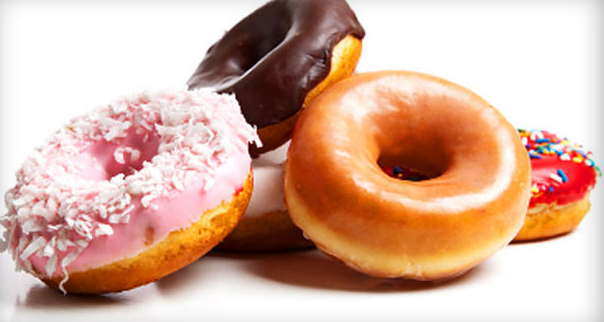A Week Of Negative News On Sugar Consumption With Links To Behavioral Problems In Kids, Dead Female Mice & Dementia
/1. Americans dominate the globe in our per capita consumption of soft drinks. Based on 2011 data, the average American buys 170 liters of soda each year. By comparison Canadians buy 101 liters and the French 45.
Research presented by the American Academy of Neurology associates a 30-38 percent higher risk of depression among those who drink four cups/cans of soda daily or fruit punch. The effect is more pronounced with diet fruit punch/soda than non-diet versions.
Meanwhile, researchers found a 10 percent lower risk of depression among coffee drinks who consume four cups a day or more.
The Harvard School of Public Health provides statistics on Sugary Drinks and Obesity.
 2. New research examining the behavior of about 3,000 at risk 5-year-olds concludes that the more sugary soft drinks they consumed, the more likely they were to exhibit aggressive behavior.
2. New research examining the behavior of about 3,000 at risk 5-year-olds concludes that the more sugary soft drinks they consumed, the more likely they were to exhibit aggressive behavior.
“We found a significant relation with soda consumption with the overall measure of aggression and with the three specific behaviors we felt were most indicative of aggression: destroying things belonging to others, getting into fights and physically attacking people,” wrote the authors, led by researcher Dr. Shakira Suglia, an assistant professor of epidemiology at Columbia University’s Mailman School of Public Health in New York City, said in a written statement.
 3. Researchers reported this week that when mice consumed a diet 25 percent higher in sugar — the equivalent of three added cans of soda each day for a healthy human, females died at twice their normal rates. Male mice were 25 percent less likely to reproduce with the added sugar in their daily diet.
3. Researchers reported this week that when mice consumed a diet 25 percent higher in sugar — the equivalent of three added cans of soda each day for a healthy human, females died at twice their normal rates. Male mice were 25 percent less likely to reproduce with the added sugar in their daily diet.
A separate group of mice were fed the same sugar-enhanced diet. Those mice experienced higher cholesterol and a hampered inability to get rid of glucose in the blood among female sugar-fed mice. Of note, neither group of mice became obese. Nor did they have notable differences in their fasting-insulin, glucose or triglyceride levels.
4. People without diabetes but above normal blood sugar are associated with an increased risk of developing dementia. Researchers examined the blood sugar levels in more than 2,000 older adults — average age 78 —taking part in the Adult Changes in Thought study.
The study does not prove that high blood sugar causes dementia, but only that there is a positive correlation between the two.
Poor dental health and gum disease may be linked to Alzheimer’s disease and dementia, with British researchers identifying gum bacteria in the brains of 10 people without dementia and 10 people with dementia. No gum disease was found in the brains of normal patients, with four dementia brains containing the bacteria.
 5. Classic Anne: Coca Cola Does Not Deliver Big O Happiness in a Can
5. Classic Anne: Coca Cola Does Not Deliver Big O Happiness in a Can
Coca Cola is guilty of premature ejaculation.
Like a guy who can’t keep it up for long, Coke promises a big happy fantasy, tantalizes you with visions of joyful nirvana but loses it, just when you’re reaching peak pleasure. It’s a guy thing.
Knowing that America is the fattest country in the world; and knowing how obesity affects not only self-esteem but our sexuality; and knowing also how worthless is the sugar in Coke, Pepsi and other sugar- rich drinks, I said just now “God bless you, Coke. Reducing the size of your can will NOT make Americans happy.”





























